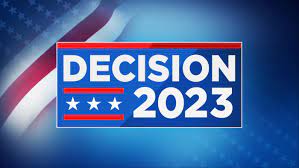Thumbnail: Will the joint meeting of city and county legislative bodies result in an in-depth and serious reform of the programs granting more tax breaks that the other major counties of Tennessee combined times three? The verdict is still out and the first meeting showed no indications of a real review. Here’s hoping that changes.
**
The much-anticipated joint meeting of Memphis City Council and Shelby County Board of Commissioners to evaluate how to make PILOTs better got off to an inauspicious start – the agencies who hand out the tax breaks explained how smart they are and Memphis Mayor Jim Strickland defaulted to his role as dependable apologist for the programs which have waived $400 million in taxes since he took office.
This first meeting was much ado about nothing, resembling nothing so much as at least three or four similar past processes, including one in 2012 convened by then-Councilman Strickland, which was convened on the promise of finding “some changes (that) need to be made, whether in the amount of incentives we’re offering or the type of incentives.”
That ballyhooed review never bothered to hire an independent analyst and fizzled out before it had really started. Here’s hoping that not the future of the current joint Council/Commission process.
In addition to hearing the same talking points and watching the same powerpoints from the usual suspects, the Council and Commission members should invite Greg LeRoy from Good Jobs First and Ellen D. Harpel of Smart Incentives to speak to a future meeting.
After all, it’s the legislative bodies that have delegated their powers to issue PILOTs to the array of agencies doing it in their name. As a result, it really matters more what the legislators think than the city and county mayors.
Open Ears and Minds
Only a small minority of Memphians and Shelby Countians favor the elimination of the tax breaks, but a large percentage believes the fundamentals of the present programs increasing the tax burdens of homeowners and small businesses need retooling.
To this end, we hope that the call for PILOT improvements do not fall on deaf ears like Mr. Strickland’s, all while tax breaks are given much more often and are larger than comparable communities.
The city mayor said he plans to “keep his foot on the pedal and to capitalize on the interest in Memphis and the advantages we have as a city.” If in fact the market is showing new interest and Memphis has such great advantages, why exactly are Memphis and Shelby County still paying companies to love us?
It doesn’t feel as much like we’re putting our foot on the pedal as we are giving away the car. Meanwhile, the mayor’s support for PILOTs presupposes that Memphis cannot compete on its own merits.
Questions for the Mayor
In light of the déjà vu of the first meeting and Mayor Strickland’s comments, here are some questions for him:
* If you believe in the value of PILOTs, why isn’t the amount of waived city taxes released to the public and posted online?
* Do you get a regular report on all existing PILOTs?
* Without an economic development plan, people can say almost anything to justify their PILOTs. What are you doing to change that, including measuring progress by improvements in workers’ lives rather than in amount of construction?
* Do you track PILOTs within the framework of your economic goals, such as higher per capita income and jobs growth?
* If agencies are proud of their work, why does only EDGE put PILOT information online and why shouldn’t City of Memphis require it all of PILOT-granting agencies? Why does the public have to file FOIA requests to get information about programs they fund?
* Have you ever requested an independent analysis of the economic impact of each PILOT or do you just rely on what the agencies tell you?
* Do you think it’s right that the Memphis Health, Educational and Housing Facility Board grants PILOTs and backs bonds for apartment projects with the highest rates of evictions in Memphis?
* Have you ever sent these tax-waiving agencies a list of priorities and measurements set by City of Memphis?
* Would you accept the same lack of transparency and accountability from any city department that you manage?
* Do you think it’s right that schools lose money every time a PILOT is approved? Shouldn’t schools be made whole like they are in many other places?
* Have you ever seen a plan for PILOTs to transition from entitlements back to incentives? Should you ask for one?
More Queries
* Do you really think taxpayers should be celebrating the fact that they get 25 cents on the dollar when a PILOT is approved when they don’t know if they could have received more with real negotiations and more nuanced programs?
* Do you think that PILOT approval is too perfunctory – fill out the form and get a tax break? Are any requests turned down and how many?
* Has City of Memphis ever hired an independent economist or a consultant to evaluate the PILOT programs or do just rely on the opinions of officials associated with agencies granting them?
* Have you ever sat in on a negotiation for a PILOT?
* Has City of Memphis ever reviewed the process and the matrix used by EDGE and Downtown Memphis Commission to see if it reflects your targets and priorities?
* What is the City of Memphis plan to transition from a community that hands out too many and too large PILOTs to one that sells itself on its assets and competitive advantages?
* Have you requested a comprehensive economic development plan as a framework for all of the agencies granting PILOTs?
* Are you planning to ask for an extension of the program you advocated that gives tax breaks to apartment developers but does nothing to address the affordable housing gap?
More Questions
* Do you think the DMC should still give PILOTs on apartment projects even though downtown occupancy rate is 95%+ which suggests a strong market now exists?
* Have you ever asked for an independent study of incentives in other cities or do you rely on the agencies here to tell you?
* Have you considered tax breaks like those given in some cities which have descending benefits over the term of the PILOT? Some also protect school funding and some offer smaller incentives, including those who are located on the borders of another state.
* Has your administration reviewed the retention PILOTs given by EDGE to correct faulty assumptions that lead to excessive PILOTs?
* Will companies that know us best – like FedEx and International Paper – ever pay their fair share of taxes? Because of PILOTs, a child born when their first PILOT was approved will be 30 years old and paying his own taxes before they pay their full share of taxes – unless they get another retention PILOT for even more years?
* Are you concerned about the message sent by companies that know us best but still demand PILOTs to stay here?
* Why not involve City Council and County Board of Commissioners, which delegated the power to waive taxes to the various agencies, if a PILOT exceeds a specified percentage of a project’s total cost? For example, PILOTs for apartments are often the equivalent of 25% of the total project?
Going Deeper and More Objective
* Why doesn’t City of Memphis pursue Community Benefits Agreements for companies and developers receiving tax breaks?
* Who speaks for working class Memphians in the various PILOT programs?
* Since research proves that business incentives are down on the list of reasons why companies make location decisions, have you asked for a plan of action to address the more important factors?
City Councilman Martavius Jones, who pushed for the joint meetings, is right when he said that the first meeting was too superficial and that a deeper dive is needed to have a clearer understanding about PILOT programs and how to make them incentives rather than entitlements.
As Councilman Jones said, legislators need fewer Powerpoints and the usual suspects making the usual talking points and instead find ways to get a broader context, more information about what is being done in other cities to control tax breaks, and to put tax equity at the center of the discussion.
***
Join us at the Smart City Memphis Facebook page for daily articles, reports, and commentaries relevant to Memphis and Shelby County.





